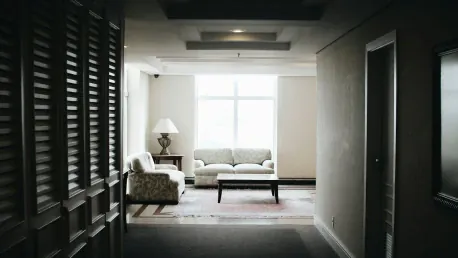Renovating a hotel is a complex endeavor that requires meticulous planning and coordination, especially when it comes to FF&E (Furniture, Fixtures, and Equipment) scheduling. The success of a hotel renovation project hinges on the precise timing and execution of FF&E procurement, ensuring that milestones are met and delays are avoided. Effective FF&E scheduling is crucial for maintaining guest reservations, adhering to opening dates, and achieving revenue targets. This article delves into the essential strategies for effective FF&E scheduling, highlighting the importance of thorough planning and coordination among all stakeholders involved in the process.
Effective Planning and Timing in FF&E Procurement
One of the most critical aspects of FF&E scheduling is the need for precise planning and timing. Proper scheduling ensures that all elements of the renovation project align seamlessly, preventing delays that could impact the hotel’s opening date, guest reservations, and revenue. The process begins with a detailed timeline that outlines each stage of the project, from design to delivery and installation. A well-structured timeline facilitates smooth coordination among interior designers, contractors, procurement teams, suppliers, and installation crews.
The interdependence of various project phases necessitates that each party be fully aware of their responsibilities and deadlines to avoid cascading delays and cost overruns. Clear milestones and adhering to a strict schedule ensure that the renovation progresses smoothly and efficiently. Aligning the schedule with the overall project goals enables the project manager to anticipate potential issues and implement corrective measures promptly. This ensures that procurement and installation are completed on time, maintaining the highest quality standards expected in the hospitality industry.
The Importance of Model Rooms
One commonly overlooked area in FF&E scheduling is the timing for model rooms. Model rooms serve as prototypes that allow stakeholders to visualize the final design and make necessary adjustments before placing large orders. Building, purchasing, and installing model rooms early in the project timeline is crucial for identifying potential issues and making refinements. Scheduling model rooms early provides ample time for feedback and modifications, ensuring that the final product meets the desired quality and aesthetic standards.
Employing a proactive approach, model rooms minimize the risk of costly changes and delays later in the project. Model rooms also offer an opportunity to test the functionality and durability of the selected furniture, fixtures, and equipment, ensuring they meet the hotel’s operational needs. This step is an essential practice for confirming that all design elements integrate seamlessly and fulfill the brand’s promise of quality and comfort. Identifying and addressing issues at this stage prevents disruptions and ensures a smoother execution during the main installation phase.
Additionally, early model room completion allows suppliers to fine-tune their production processes, boosting efficiency and aligning with the broader project timeline. Early identification of supply chain or quality issues helps in addressing them promptly without compromising the overall renovation schedule. The careful planning and timing dedicated to model rooms thus play a pivotal role in achieving project success and maintaining guest satisfaction levels.
Completing General Contractor Punch Lists
Another critical stage in FF&E scheduling is the completion of general contractor punch lists before furniture installation. Punch lists are detailed documents that outline any remaining tasks or deficiencies that need to be addressed before the project can be considered complete. Ensuring that punch lists are completed before furniture installation prevents overlap and disruption. By addressing all outstanding issues before installing furniture, project managers can avoid potential damage to the new furnishings and ensure a smoother installation process.
This step also allows for a more organized and efficient transition from construction to the final stages of the renovation, reducing the risk of delays and additional costs. Completing punch lists in advance provides a clear roadmap for making necessary adjustments and repairs without compromising the timeline. The careful monitoring of this phase solidifies the foundation for a successful installation, ensuring that all aspects of construction are in perfect harmony, thus preventing discord during the furniture setup.
Moreover, thorough completion of punch lists helps in maintaining a high standard of quality for the renovated spaces. By resolving construction defects and adjustments beforehand, the installation team can focus on unimpeded installation, contributing to overall project efficiency. Effective communication between contractors, project managers, and procurement teams during this stage ensures that any discrepancies are promptly addressed, fostering a seamless transition and ensuring that the furnished space meets design intent and operational requirements.
Operational Turnover Period
The operational turnover period is another essential aspect of FF&E scheduling that is often overlooked. This period allows the hotel to set up its operations across various departments, such as housekeeping and food and beverage, before opening to guests. Proper scheduling of the operational turnover period ensures that all departments are fully prepared to provide a seamless guest experience from day one. Allowing sufficient time for operational setup helps identify and address any potential issues that could impact the hotel’s performance.
It also provides an opportunity for staff training and familiarization with the new facilities and equipment, ensuring that the hotel operates efficiently and effectively once it opens to guests. Organizing functional setups and operational trials during this turnover phase allows for fine-tuning of all internal processes. Identifying and solving potential operational hiccups in advance ensures a flawlessly executed opening day experience, enhancing guest satisfaction and operational efficiency significantly from the very start.
During this phase, collaboration between different departments enhances readiness and promotes a cohesive understanding of the hotel’s new operational dynamics. The integration of operational teams in the final preparation stages ensures seamless interaction between the physical setup and the day-to-day activities, thus translating into superior service delivery. Creating a buffer between construction completion and guest check-in provides the necessary leeway for unforeseen adjustments, guaranteeing that every aspect of the hotel is optimized for performance.
Benefits of Clear FF&E Scheduling
Clear FF&E scheduling offers numerous benefits, including effective goal setting, quality assurance, and logistical coordination. A detailed timeline helps synchronize procurement with the overall project, minimizing the risks of last-minute changes that can impact quality and cost. By setting clear goals and deadlines, project managers can ensure that all parties are aligned and working towards the same objectives. Proper scheduling also ensures timely inspections of delivered furniture, allowing any defects to be addressed without causing project delays.
This proactive approach to quality assurance helps maintain the high standards expected in the hospitality industry. Additionally, efficient logistical coordination ensures that furniture arrives on time and installation crews can work uninterrupted, further reducing the risk of delays and cost overruns. Synchronizing all elements through adept scheduling optimizes the workflow, preventing bottlenecks and promoting a harmonious project execution, culminating in a timely and successful renovation.
Efficient FF&E scheduling is a critical aspect that guarantees the smooth transition of various phases of the renovation. The ability to foresee and navigate potential challenges offers a buffer for addressing any unforeseen complications without derailing the project timeline. The meticulous approach in planning and execution underscores the importance of FF&E scheduling in ensuring that the renovated hotel not only meets but exceeds guest expectations, thereby fostering repeat visits and positive reviews.
Enhancing Guest Experience and Operational Efficiency
In the competitive hospitality industry, FF&E procurement scheduling is about more than just meeting deadlines. It plays a crucial role in delivering quality, comfort, and aesthetic appeal, which are essential for enhancing the guest experience. A well-coordinated schedule ensures that the furniture and fixtures contribute to the overall ambiance and functionality of the hotel, creating a welcoming and comfortable environment for guests. Moreover, effective FF&E scheduling supports operational efficiency by ensuring that all elements of the renovation project are completed on time and to the highest standards.
This attention to detail helps the hotel operate smoothly and efficiently, providing a superior guest experience and maximizing revenue potential. Ensuring that everything from the procurement of items to their final installation is planned meticulously translates into a seamless and visually appealing environment, highly reflective of the brand’s promise. Efficient execution of FF&E tasks ensures that the transformation of the hotel space meets the precise design intent while safeguarding operational flow.
Achieving an enhanced guest experience is a direct result of diligent FF&E scheduling and execution. The well-thought-out integration of all components represents the seamless alignment of functional and aesthetic elements, thus enriching the overall guest experience. The ability to preemptively address potential issues through precise scheduling further cements the efficiency of operations, ensuring that the hotel’s staff can deliver services effectively and consistently, elevating guest satisfaction and operational success.
Charis Atwood’s Expertise in FF&E Scheduling
Renovating a hotel is a multifaceted task requiring careful planning and precise coordination, especially regarding FF&E (Furniture, Fixtures, and Equipment) scheduling. The success of such a project depends significantly on the timely procurement and installation of FF&E, ensuring critical deadlines are met to avoid any delays. Proper scheduling is vital for maintaining guest reservations, sticking to opening dates, and hitting revenue targets. Any disruption can result in financial losses and damage the hotel’s reputation. This article explores essential strategies for achieving effective FF&E scheduling, showcasing why thorough planning and seamless coordination among all stakeholders are imperative. From detailed timelines to proactive communication with vendors and contractors, every step must be meticulously executed to ensure a smooth renovation process. By emphasizing the critical nature of FF&E scheduling, hotel managers can better navigate the complexities of renovation projects, ensuring they deliver on time and within budget, ultimately enhancing the overall guest experience.









